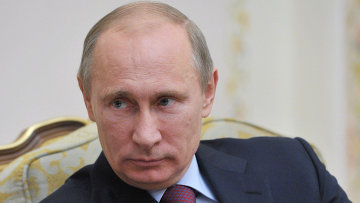MOSCOW, May 8 (RAPSI) - President Vladimir Putin has signed a package of laws that stipulate the procedure for parliamentary control in Russia, its forms and cases where a parliamentary investigation can be launched.
The laws have been posted on the government's official legal website.
Until recently, Russia did not have a special legal act on parliamentary control, Andrei Klishas, the chairman of the upper house's constitutional law committee, said during a Federation Council meeting.
The framework act signed by the president determines the goals and the principles of parliamentary control.
Parliamentary control includes annual reports from the government, a no confidence motion against the government, budgetary relations monitoring, the consideration of the Central Bank's reports and the so-called "Government Hours," when the government reports on its performance. Other measures of parliamentary control are the appointment and the dismissal of officials who are accountable to parliament, such as the chairs and the auditors of the Audit Chamber.
The parliament houses will be able to invite members of government not only to their plenary meetings, but also to the meetings of their committees and their commissions. The government will be obliged to inform parliament about progress in drafting statutes and regulations necessary for implementing laws. It will also be possible to include MPs in government commissions investigating emergencies.
The new law also provides for the possibility of conducting a parliamentary investigation with regard to serious violations of financial discipline. Legislators will also submit their assessments and their opinions when drafting state programs.



